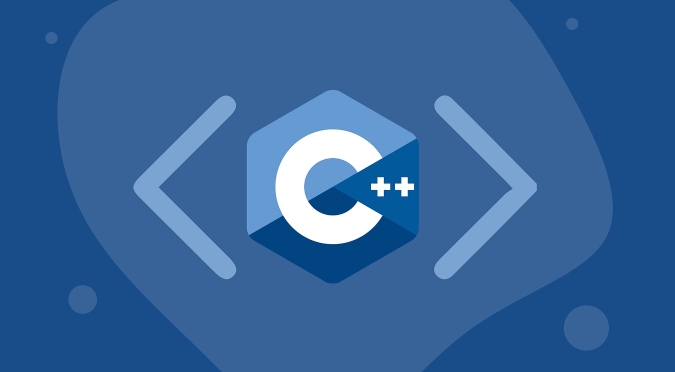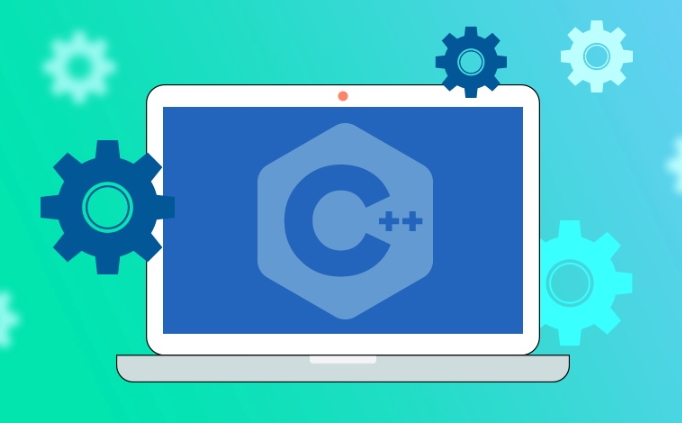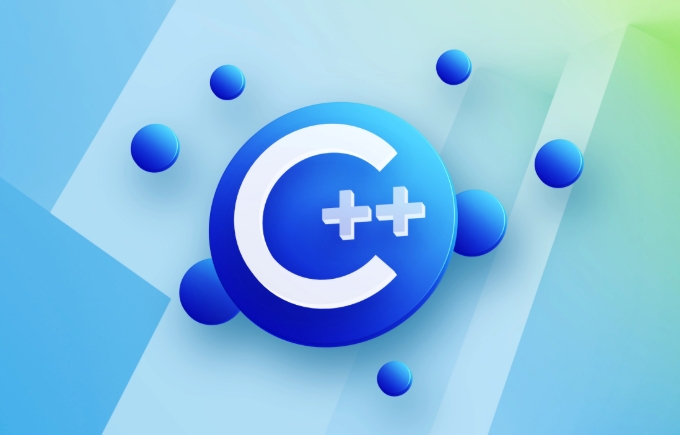const_cast is used to add or remove the const/volatile attribute. It is only applicable to pointers, references, or pointers to members and cannot be used for primitive type conversion. 1. When the original object is not const, it is legal to modify its value through const_cast; 2. If the original object is a real const object, modification will lead to undefined behavior; 3. Common uses include calling the legacy non-const interface and implementing the reuse between const and non-const member functions, such as calling the non-const version in the const function to avoid code duplication. It is necessary to ensure that the object itself is modifiable, otherwise the behavior is undefined.

const_cast is a type conversion operator in C, mainly used to add or remove the const (or volatile ) attribute of a variable. The most common use is to convert const pointer or reference to a non const so that in special cases it is modified an object that was originally declared as const .

?? Note: It is legal to use const_cast to remove const and modify its value if the original object itself is not const object . If the original object is a real const object (like const int x = 10; ), modifying it via const_cast will result in undefined behavior .
? Legal use example: Modify objects that are not originally const
#include <iostream>
using namespace std;
void modifyValue(const int* ptr) {
// Remove the const attribute, provided that the original object is not a const
int* mutablePtr = const_cast<int*>(ptr);
*mutablePtr = 100; // Modify the value}
int main() {
int value = 42; // non-const object cout << "Before: " << value << endl;
modifyValue(&value); // The incoming address is treated as const int*
cout << "After: " << value << endl; // Output 100
return 0;
}Output:

Before: 42 After: 100
? explain:
-
valueitself is notconst, so it is safe to modify it viaconst_cast. - The
modifyValuefunction acceptsconst int*, indicating that it promises not to modify the data. - But under special needs (such as calling old interfaces), we can use
const_castto temporarily removeconst.
? Illegal use example: Modify the real const object
int main() {
const int x = 10;
int* p = const_cast<int*>(&x);
*p = 20; // ?? Undefined behavior!
cout << x << endl; // It may still be 10, or it may crash return 0;
} ? Even if the compilation is passed, the operation results are unpredictable. Because x is a true constant, it may be stored in read-only memory segments.

Other common uses: Calling overloaded functions
Sometimes you need to call different versions of member functions according to const state:
class MyClass {
public:
void display() const {
std::cout << "const version" << std::endl;
// But I want to call the non-const version const_cast<MyClass*>(this)->display() in the const function; // Example, be careful in practice}
void display() {
std::cout << "non-const version" << std::endl;
}
};
int main() {
MyClass obj;
obj.display(); // Call non-const
const MyClass cobj;
cobj.display(); // Call const
} ? This technique is often used when implementing const and non- const versions of getter to avoid duplicate code.
For example:
const int& get(int i) const { return data[i]; }
int& get(int i) {
return const_cast<int&>( // Remove const
static_cast<const MyClass*>(this)->get(i)
);
}Summary of the key points
-
const_cast<type>(expression)</type>can only be used to add/removeconstorvolatile. - Cannot be used to change the primitive type (such as
inttodouble). - Use only for pointers, references, or pointers to members.
- Modify an object that was originally
const→ undefined behavior . - Common uses:
- Calling legacy interface (accepting non-const pointers)
- Implement the multiplexing of
constand non-constmember functions
Basically that's it. const_cast is one of the few legal ways to "break" const , but must be used with caution.
The above is the detailed content of C const_cast example. For more information, please follow other related articles on the PHP Chinese website!

Hot AI Tools

Undress AI Tool
Undress images for free

Undresser.AI Undress
AI-powered app for creating realistic nude photos

AI Clothes Remover
Online AI tool for removing clothes from photos.

Clothoff.io
AI clothes remover

Video Face Swap
Swap faces in any video effortlessly with our completely free AI face swap tool!

Hot Article

Hot Tools

Notepad++7.3.1
Easy-to-use and free code editor

SublimeText3 Chinese version
Chinese version, very easy to use

Zend Studio 13.0.1
Powerful PHP integrated development environment

Dreamweaver CS6
Visual web development tools

SublimeText3 Mac version
God-level code editing software (SublimeText3)

Hot Topics
 Using std::chrono in C
Jul 15, 2025 am 01:30 AM
Using std::chrono in C
Jul 15, 2025 am 01:30 AM
std::chrono is used in C to process time, including obtaining the current time, measuring execution time, operation time point and duration, and formatting analysis time. 1. Use std::chrono::system_clock::now() to obtain the current time, which can be converted into a readable string, but the system clock may not be monotonous; 2. Use std::chrono::steady_clock to measure the execution time to ensure monotony, and convert it into milliseconds, seconds and other units through duration_cast; 3. Time point (time_point) and duration (duration) can be interoperable, but attention should be paid to unit compatibility and clock epoch (epoch)
 What is the volatile keyword in C ?
Jul 04, 2025 am 01:09 AM
What is the volatile keyword in C ?
Jul 04, 2025 am 01:09 AM
volatile tells the compiler that the value of the variable may change at any time, preventing the compiler from optimizing access. 1. Used for hardware registers, signal handlers, or shared variables between threads (but modern C recommends std::atomic). 2. Each access is directly read and write memory instead of cached to registers. 3. It does not provide atomicity or thread safety, and only ensures that the compiler does not optimize read and write. 4. Constantly, the two are sometimes used in combination to represent read-only but externally modifyable variables. 5. It cannot replace mutexes or atomic operations, and excessive use will affect performance.
 How to get a stack trace in C ?
Jul 07, 2025 am 01:41 AM
How to get a stack trace in C ?
Jul 07, 2025 am 01:41 AM
There are mainly the following methods to obtain stack traces in C: 1. Use backtrace and backtrace_symbols functions on Linux platform. By including obtaining the call stack and printing symbol information, the -rdynamic parameter needs to be added when compiling; 2. Use CaptureStackBackTrace function on Windows platform, and you need to link DbgHelp.lib and rely on PDB file to parse the function name; 3. Use third-party libraries such as GoogleBreakpad or Boost.Stacktrace to cross-platform and simplify stack capture operations; 4. In exception handling, combine the above methods to automatically output stack information in catch blocks
 What is a POD (Plain Old Data) type in C ?
Jul 12, 2025 am 02:15 AM
What is a POD (Plain Old Data) type in C ?
Jul 12, 2025 am 02:15 AM
In C, the POD (PlainOldData) type refers to a type with a simple structure and compatible with C language data processing. It needs to meet two conditions: it has ordinary copy semantics, which can be copied by memcpy; it has a standard layout and the memory structure is predictable. Specific requirements include: all non-static members are public, no user-defined constructors or destructors, no virtual functions or base classes, and all non-static members themselves are PODs. For example structPoint{intx;inty;} is POD. Its uses include binary I/O, C interoperability, performance optimization, etc. You can check whether the type is POD through std::is_pod, but it is recommended to use std::is_trivia after C 11.
 How to call Python from C ?
Jul 08, 2025 am 12:40 AM
How to call Python from C ?
Jul 08, 2025 am 12:40 AM
To call Python code in C, you must first initialize the interpreter, and then you can achieve interaction by executing strings, files, or calling specific functions. 1. Initialize the interpreter with Py_Initialize() and close it with Py_Finalize(); 2. Execute string code or PyRun_SimpleFile with PyRun_SimpleFile; 3. Import modules through PyImport_ImportModule, get the function through PyObject_GetAttrString, construct parameters of Py_BuildValue, call the function and process return
 What is function hiding in C ?
Jul 05, 2025 am 01:44 AM
What is function hiding in C ?
Jul 05, 2025 am 01:44 AM
FunctionhidinginC occurswhenaderivedclassdefinesafunctionwiththesamenameasabaseclassfunction,makingthebaseversioninaccessiblethroughthederivedclass.Thishappenswhenthebasefunctionisn’tvirtualorsignaturesdon’tmatchforoverriding,andnousingdeclarationis
 What is a null pointer in C ?
Jul 09, 2025 am 02:38 AM
What is a null pointer in C ?
Jul 09, 2025 am 02:38 AM
AnullpointerinC isaspecialvalueindicatingthatapointerdoesnotpointtoanyvalidmemorylocation,anditisusedtosafelymanageandcheckpointersbeforedereferencing.1.BeforeC 11,0orNULLwasused,butnownullptrispreferredforclarityandtypesafety.2.Usingnullpointershe
 How to pass a function as a parameter in C ?
Jul 12, 2025 am 01:34 AM
How to pass a function as a parameter in C ?
Jul 12, 2025 am 01:34 AM
In C, there are three main ways to pass functions as parameters: using function pointers, std::function and Lambda expressions, and template generics. 1. Function pointers are the most basic method, suitable for simple scenarios or C interface compatible, but poor readability; 2. Std::function combined with Lambda expressions is a recommended method in modern C, supporting a variety of callable objects and being type-safe; 3. Template generic methods are the most flexible, suitable for library code or general logic, but may increase the compilation time and code volume. Lambdas that capture the context must be passed through std::function or template and cannot be converted directly into function pointers.






